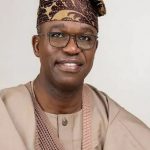The Federal Government of Nigeria has commenced high-level engagements with international financial institutions to secure over $60 million in climate finance to launch pilot green energy hubs, including a landmark hybrid energy project at a major Nigerian airport. The initiative is expected to serve as a blueprint for clean, affordable, and digitally monitored energy solutions across key public infrastructure nationwide.
Vice President Kashim Shettima announced the plan during the Decarbonising Infrastructure in Nigeria Summit, held at the State House Conference Centre in Abuja. The summit focused on unlocking climate finance to drive Nigeria’s sustainable development goals.
“We can no longer delay. Climate action is not just about the environment; it is an economic necessity,” Shettima declared. “Over 75% of Nigeria’s greenhouse gas emissions originate from key infrastructure sectors, energy, transportation, agriculture, and urban development, which are central to our economic survival.”
He warned that continued inaction in the face of rising climate threats could derail Nigeria’s long-term development plans, especially as the country’s population is projected to exceed 440 million by 2050. Without decisive interventions, this growth could further strain natural resources and deepen environmental degradation.
The proposed hybrid energy project at a Nigerian airport is just one part of a broader federal strategy to position clean energy as a catalyst for economic transformation. The hubs will integrate renewable power solutions with real-time digital monitoring, aimed at improving efficiency and reducing emissions.
According to Shettima, decarbonizing these critical sectors is directly tied to Nigeria’s prosperity. “The sectors contributing most to our emissions are also those sustaining our livelihoods. To decarbonise is to invest in Nigeria’s prosperity,” he stated.
He reaffirmed the government’s commitment to climate resilience and highlighted several ongoing initiatives, including:
- A State Innovation Challenge Park for sustainable solutions
- Regional climate engagement clinics to ensure inclusive participation
- A new white paper on green growth financing
A Call for Urgent, Inclusive Action
Shettima stressed that Nigeria’s climate transition must be inclusive and community-led, reaching every state and household. “Inclusivity is not an afterthought; it is the cornerstone. Our goal is net-zero, but our journey must be local, inclusive, and urgent. The time for bullet points is over. The time for bold action is now.”
He also called for:
- Policy harmonisation across federal, state, and local governments
- Adoption of innovative financing models such as green bonds and climate investment funds
- Support for climate-smart technologies and locally driven solutions
What This Means for Africa’s Climate and MSME Ecosystem
While this funding drive is focused on Nigeria, its implications could extend across Africa’s broader climate and MSME landscape. The push for sustainable infrastructure, renewable energy hubs, and inclusive climate financing models opens up new opportunities for green businesses, startups, and local manufacturers in clean-tech, agriculture, and energy.
As Nigeria sets the tone with practical, investment-backed climate strategies, other African countries may find a framework to align their own climate actions with economic development, particularly in supporting MSMEs to become part of a more resilient, low-carbon future.










